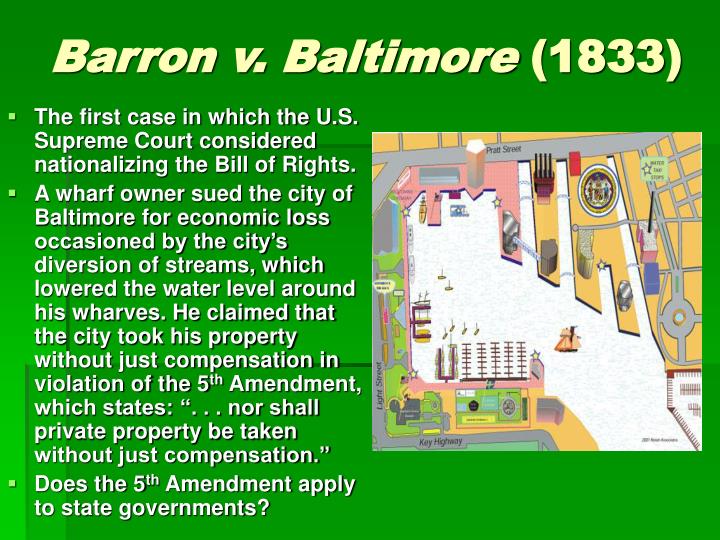
Accordingly, the Fifth Amendment does not apply to the State of Maryland in the present case. Constitution do not use language that would lead the Court to believe that they were meant to apply to the States. As a result, a great deal of sand and earth accumulated by the wharf, making the water too shallow to dock most ships.īarron sued the Mayor and City of Baltimore to recover his financial loss because eventually the wharf was of little value.Ĭhief Justice John Marshall, writing for a unanimous Court, held that the amendments to the U.S. In order to expand and grow, the City of Baltimore diverted the flow of certain streams and paved many streets. The wharf was profitable because of the deep water surrounding it, allowing for large cargo vessels to dock.

John Barron was a co-owner of a lucrative wharf in Baltimore harbor. The Court held that it did not have jurisdiction to hear the case because the Fifth Amendment applies to the Federal government, not to the States.Barron argued that the city’s actions amounted to a taking of his private property in violation of the Fifth Amendment of the U.S.The trial court’s decision in Barron’s favor was reversed by the State appeals court.Barron claimed that city expansion resulted in sand accumulating at his wharf, making it lose all value. Barron, a co-owner of a once-profitable wharf in Baltimore Harbor, sued the Mayor and City of Baltimore.


 0 kommentar(er)
0 kommentar(er)
